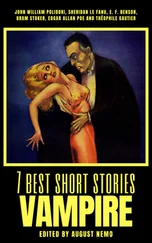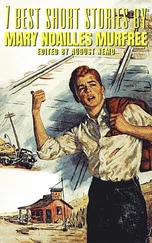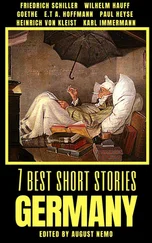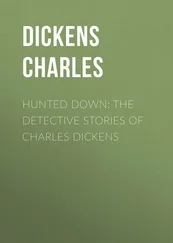The apologists of any revolution generally try to minimize its horrors; Dickens's impulse is to exaggerate them—and from a historical point of view he has certainly exaggerated. Even the Reign of Terror was a much smaller thing than he makes it appear. Though he quotes no figures, he gives the impression of a frenzied massacre lasting for years, whereas in reality the whole of the Terror, so far as the number of deaths goes, was a joke compared with one of Napoleon's battles. But the bloody knives and the tumbrils rolling to and fro create in his mind a special sinister vision which he has succeeded in passing on to generations of readers. Thanks to Dickens, the very word 'tumbril' has a murderous sound; one forgets that a tumbril is only a sort of farm-cart. To this day, to the average Englishman, the French Revolution means no more than a pyramid of severed heads. It is a strange thing that Dickens, much more in sympathy with the ideas of the Revolution than most Englishmen of his time, should have played a part in creating this impression.
If you hate violence and don't believe in politics, the only remedy remaining is education. Perhaps society is past praying for, but there is always hope for the individual human being, if you can catch him young enough. This belief partly accounts for Dickens's preoccupation with childhood.
No one, at any rate no English writer, has written better about childhood than Dickens. In spite of all the knowledge that has accumulated since, in spite of the fact that children are now comparatively sanely treated, no novelist has shown the same power of entering into the child's point of view. I must have been about nine years old when I first read David Copperfield . The mental atmosphere of the opening chapters was so immediately intelligible to me that I vaguely imagined they had been written by a child . And yet when one re-reads the book as an adult and sees the Murdstones, for instance, dwindle from gigantic figures of doom into semi-comic monsters, these passages lose nothing. Dickens has been able to stand both inside and outside the child's mind, in such a way that the same scene can be wild burlesque or sinister reality, according to the age at which one reads it. Look, for instance, at the scene in which David Copperfield is unjustly suspected of eating the mutton chops; or the scene in which Pip, in Great Expectations , coming back from Miss Havisham's house and finding himself completely unable to describe what he has seen, takes refuge in a series of outrageous lies—which, of course, are eagerly believed. All the isolation of childhood is there. And how accurately he has recorded the mechanisms of the child's mind, its visualizing tendency, its sensitiveness to certain kinds of impression. Pip relates how in his childhood his ideas about his dead parents were derived from their tombstones:
The shape of the letters on my father's, gave me an odd idea that he was a square, stout, dark man, with curly black hair. From the character and turn of the inscription, 'ALSO GEORGIANA, WIFE OF THE ABOVE', I drew a childish conclusion that my mother was freckled and sickly. To five little stone lozenges, each about a foot and a half long, which were arranged in a neat row beside their grave, and were sacred to the memory of five little brothers of mine...I am indebted for a belief I religiously entertained that they had all been born on their backs with their hands in their trouser-pockets, and had never taken them out in this state of existence.
There is a similar passage in David Copperfield . After biting Mr. Murdstone's hand, David is sent away to school and obliged to wear on his back a placard saying, 'Take care of him. He bites.' He looks at the door in the playground where the boys have carved their names, and from the appearance of each name he seems to know in just what tone of voice the boy will read out the placard:
There was one boy—a certain J. Steerforth—who cut his name very deep and very often, who, I conceived, would read it in a rather strong voice, and afterwards pull my hair. There was another boy, one Tommy Traddles, who I dreaded would make game of it, and pretend to be dreadfully frightened of me. There was a third, George Demple, who I fancied would sing it.
When I read this passage as a child, it seemed to me that those were exactly the pictures that those particular names would call up. The reason, of course, is the sound-associations of the words (Demple—'temple'; Traddles—probably 'skedaddle'). But how many people, before Dickens, had ever noticed such things? A sympathetic attitude towards children was a much rarer thing in Dickens's day than it is now. The early nineteenth century was not a good time to be a child. In Dickens's youth children were still being 'solemnly tried at a criminal bar, where they were held up to be seen', and it was not so long since boys of thirteen had been hanged for petty theft. The doctrine of 'breaking the child's spirit' was in full vigour, and The Fairchild Family was a standard book for children till late into the century. This evil book is now issued in pretty-pretty expurgated editions, but it is well worth reading in the original version. It gives one some idea of the lengths to which child-discipline was sometimes carried. Mr. Fairchild, for instance, when he catches his children quarrelling, first thrashes them, reciting Dr. Watts's 'Let dogs delight to bark and bite' between blows of the cane, and then takes them to spend the afternoon beneath a gibbet where the rotting corpse of a murderer is hanging. In the earlier part of the century scores of thousands of children, aged sometimes as young as six, were literally worked to death in the mines or cotton mills, and even at the fashionable public schools boys were flogged till they ran with blood for a mistake in their Latin verses. One thing which Dickens seems to have recognized, and which most of his contemporaries did not, is the sadistic sexual element in flogging. I think this can be inferred from David Copperfield and Nicholas Nickleby . But mental cruelty to a child infuriates him as much as physical, and though there is a fair number of exceptions, his schoolmasters are generally scoundrels.
Except for the universities and the big public schools, every kind of education then existing in England gets a mauling at Dickens's hands. There is Doctor Blimber's Academy, where little boys are blown up with Greek until they burst, and the revolting charity schools of the period, which produced specimens like Noah Claypole and Uriah Heep, and Salem House, and Dotheboys Hall, and the disgraceful little dame-school kept by Mr. Wopsle's great-aunt. Some of what Dickens says remains true even today. Salem House is the ancestor of the modern 'prep school', which still has a good deal of resemblance to it; and as for Mr. Wopsle's great-aunt, some old fraud of much the same stamp is carrying on at this moment in nearly every small town in England. But, as usual, Dickens's criticism is neither creative nor destructive. He sees the idiocy of an educational system founded on the Greek lexicon and the wax-ended cane; on the other hand, he has no use for the new kind of school that is coming up in the fifties and sixties, the 'modern' school, with its gritty insistence on 'facts'. What, then, does he want? As always, what he appears to want is a moralized version of the existing thing—the old type of school, but with no caning, no bullying or underfeeding, and not quite so much Greek. Doctor Strong's school, to which David Copperfield goes after he escapes from Murdstone & Grinby's, is simply Salem House with the vices left out and a good deal of 'old grey stones' atmosphere thrown in:
Doctor Strong's was an excellent school, as different from Mr. Creakle's as good is from evil. It was very gravely and decorously ordered, and on a sound system; with an appeal, in everything, to the honour and good faith of the boys...which worked wonders. We all felt that we had a part in the management of the place, and in sustaining its character and dignity. Hence, we soon became warmly attached to it—I am sure I did for one, and I never knew, in all my time, of any boy being otherwise—and learnt with a good will, desiring to do it credit. We had noble games out of hours, and plenty of liberty; but even then, as I remember, we were well spoken of in the town, and rarely did any disgrace, by our appearance or manner, to the reputation of Doctor Strong and Doctor Strong's boys.
Читать дальше
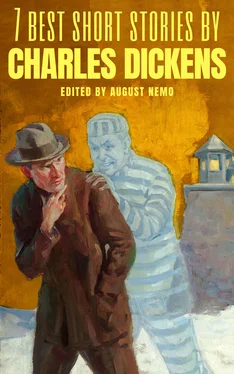
![Коллектив авторов - Best Short Stories [С англо-русским словарем]](/books/26635/kollektiv-avtorov-best-short-stories-s-anglo-thumb.webp)


